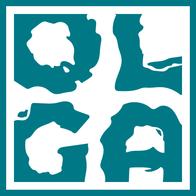Online "pre-sessions" to prepare for the focus groups in person
After the Corona situation in Dresden and the region has intensified in November 2021, we decided to postpone the LIVE focus groups until spring 2022. Nevertheless, we used the already communicated dates at the end of November and beginning of December 2021 for so called "online pre-sessions" in order to introduce the participating regional actors to each other for the first time and to sketch out initial moods and opinions with regard to the four focus group topics and take up the results for the face-to-face events. Below is a brief summary of the results of the online exchanges:
22.11.2021: Online exchange "Promoting biodiversity through the cultivation of agricultural wood - unrealistic or feasible?"
Knowledge about the establishment and management of agrowood structures in general needs to be communicated more strongly in the Dresden region. Farmers often do not know how to start. The transparent communication of the total costs as well as the ecological advantages of agroforestry use for soil and biodiversity is an important task here. In the end, it must be clear to land owners and users that it is worthwhile to cultivate biodiversity-promoting and multifunctional agroforestry systems which can provide versatile value-added options: from woodchips to the fruits of trees to feedstock for charcoal. This form of land use can also promote certain ecosystem services, but must be designed differently in relation to the respective agricultural system. The funding framework conditions for the realisation of agroforestry systems still need to be created in Saxony. What these can look like in concrete terms will also be the subject of the next focus group event on 25th of April 2022.
25.11.2021: Online exchange "Sustainable land use along watercourses through agroforestry structures"
Analogous to the biodiversity focus group, it was also called for the benefits of agroforestry structures along watercourses to be communicated more strongly. Together with the lower water authorities, the legal hurdles but also possibilities for integrating agroforestry systems into watercourse maintenance measures should be discussed. Farmers who currently still have reservations about planting wood on their land should definitely participate in the focus group. It is important to jointly sketch out a concrete plant design for both the agricultural area and the watercourse edge at the meeting on 28th of April 2022.
30.11.2021: Online exchange "Regionally produced legumes for the local food industry"
The aim is to grow and process more legumes, such as lupins, peas, beans, for human nutrition in the Dresden region together with the Legume Network Saxony. Whether in baked goods, in spreads or simply as a mini snack or lunch dish: pulses are more popular than ever due to their good climate balance, their gluten-free nature and as a vegan protein-rich alternative. Here, too, it is important to convince farmers that cultivation is worthwhile and that the infrastructure for processing is available regionally. Establishing stable value chains and developing new products with pulses are the current challenges here. Young people in particular are thinking more about a healthy, energy-rich diet - products with pulses are very much on the rise. At the presence event on 3rd of May 2022, the important players along the value chain will be represented to discuss new forms of cultivation and value creation options with pulses in the Dresden region.
02.12.2021: Online exchange "Vegetable Pool 3.0 - Securing land for nutritional purposes through regional cooperation?"
How can we secure more land for regional nutrition? Regional planning cannot dictate what exactly the farmer should grow, whether he should cultivate it organically or not or sell it regionally. There are many young farmers who are looking for land to do organic farming. How do they get hold of affordable land? There is a lot of scrambling for land. Most of it is farmed by large agricultural cooperatives. One possibility would be for large companies to give land to young farmers so that farming can be carried out side by side - organically and conventionally. This strategy would also promote diversity in cultivation and varieties. At the focus group event on 5th o May 2022, the participants will jointly consider how they would cultivate a 10 ha field in the immediate vicinity of the event location.

